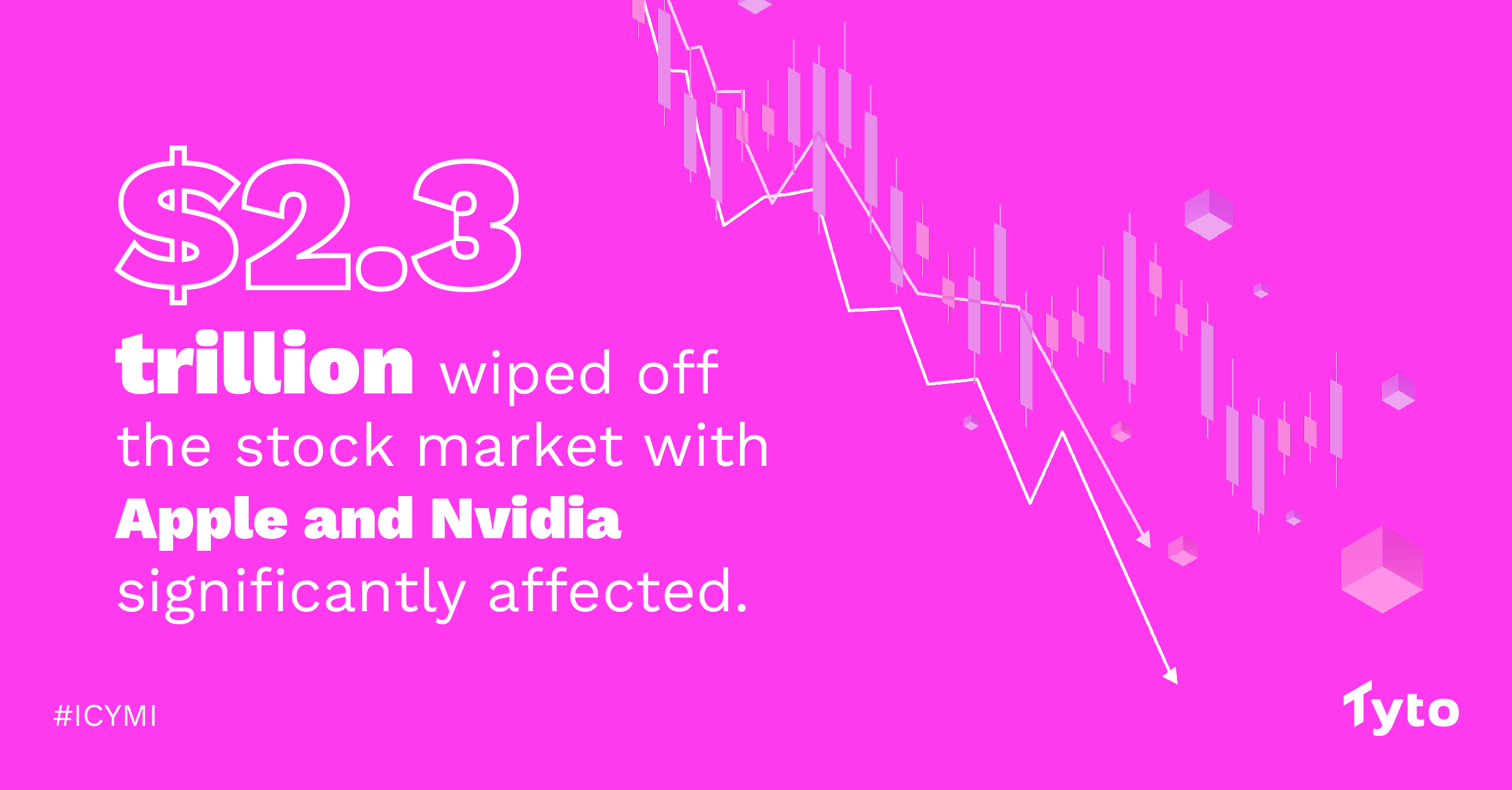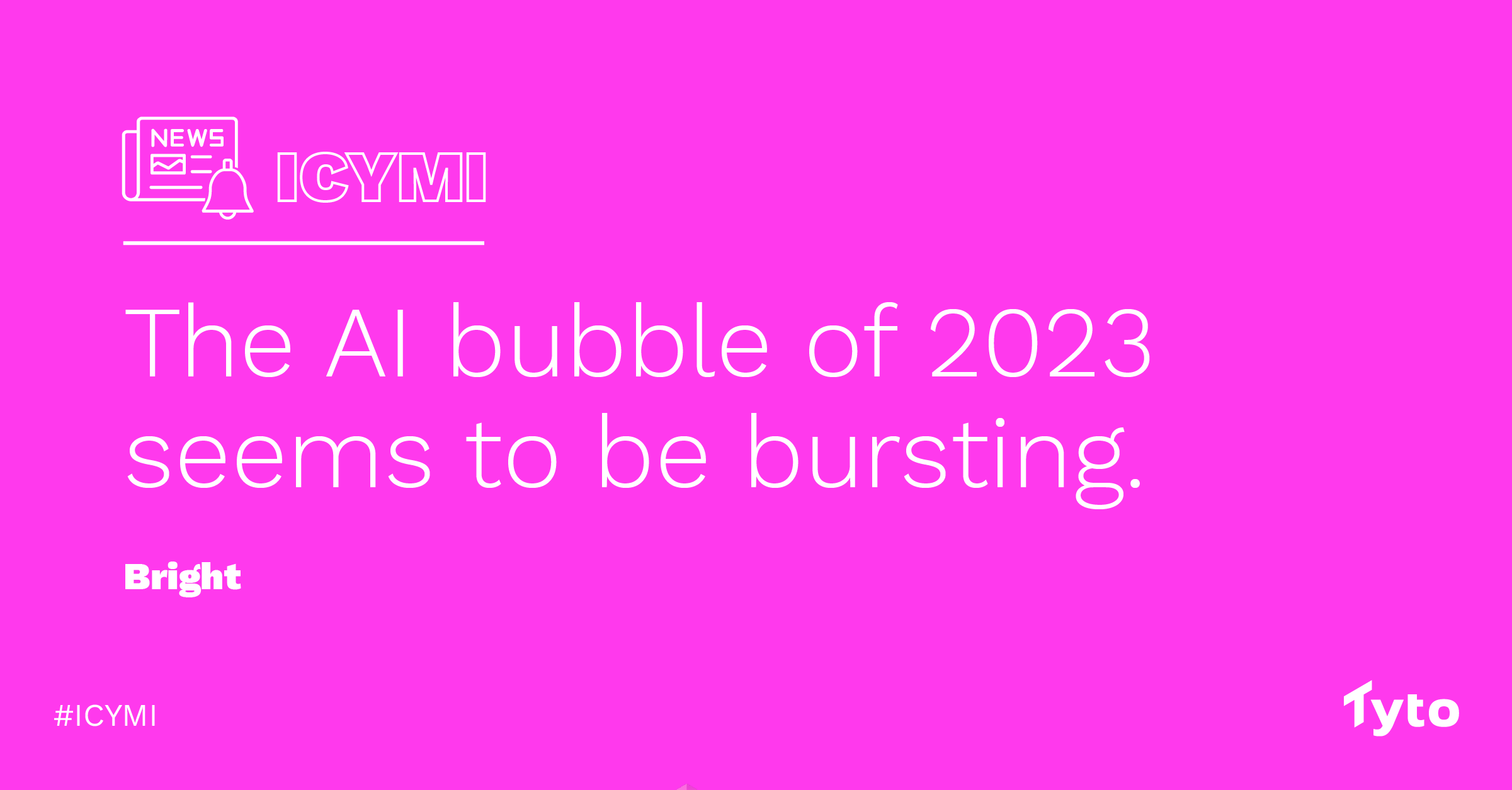In Case You Missed It: AI bubble bursting and tech stock collapse
Welcome to ICYMI – a weekly snapshot of European news stories that have given me pause for thought. ICYMI is a chance for you to go beyond the front-page headlines and find out what other stories may be worthy of your attention.
Summer may well be in full swing but a number of dark clouds are beginning to cast a shadow over the tech sector. The widely reported stock market downturn and fears of a recession in the US loom largest. This week’s tech and business media reflects this; it is sadly full of examples of the turbulent times we face. However, there are a few rays of light, too. The outlook may be gloomy for a little while yet, but there are always opportunities to tell positive stories too. Let’s take a look.
Bright reports that ‘the AI bubble of 2023 seems to be bursting’ and raises the alarm with language like ‘code red’ and ‘bloodbath’ in reference to the stock market. Other reports let the numbers do the talking: $2.3 trillion is being wiped off the stock market. Apple and Nvidia are apparently seeing the biggest impact of that, though few major tech companies will be left unscathed.

We’ll come back to this story a little later, with a more positive outlook, but there were a range of other stories that helped add fuel onto a growing pyre of pessimism. Les Echoes, like many others, focussed on Intel’s mass layoffs of 15,000 people as it struggles to keep pace with advancements in AI. The piece highlights how, despite significant recent investments, Intel has struggled to catch up with competitors, prompting the need to streamline operations and refocus efforts. While some may see AI as a bubble, others are reeling from its impact.
In the UK, media covered the government’s announcement to cancel £1.3 billion in funding for AI and technology projects, including a significant exascale supercomputer initiative at the University of Edinburgh, as part of a cost-cutting effort by the new Labour government. The BBC’s piece highlighted several criticisms of the government’s plans, with some experts fearing it will push more entrepreneurs to the US.
Elsewhere, Forbes focussed on a Robert Walters salary study, which found that only 45% of executives received a raise in 2024, down from 68% last year. Despite having lower expectations this year, many of those who did receive a raise found it to be insufficient, with 78% receiving a lower-than-inflation increase of 5%. The article highlights how this is creating high levels of job dissatisfaction, as 68% of executives who received a raise lower than they expected are now considering changing jobs.

That’s quite a lot to take in. There is no doubt we are experiencing a turbulent period, but I did promise some rays of light. For example, going back to the bursting of the proverbial AI bubble and the collapse of tech stocks, the Evening Standard features comment from John Moore, senior investment manager at RBC Brewin Dolphin, who says “These companies should grow over time, but it won’t be linear and bumps on the road ahead are inevitable… it is a natural part of the process before the next leg up can begin.”
There is also welcome news for borrowers from the Bank of England, which has cut interest rates for first time in four years, reducing its base interest rate to 5.25% to 5%. As reported by the Independent, this was due to inflation holding at the 2% target and aims to ease the burden on homeowners facing high mortgage rates.
There is always the temptation for media and organisations to lean into the negativity but, as we’ve seen over the last week, there are still opportunities to tell positive stories. As the turbulence continues, organisations will need to make a conscious decision on how they want to communicate. There is no right or wrong decision – it’s unique to the brand in question – but, as ever, there are fundamental questions they should be asking themselves to help chart a course forward.











